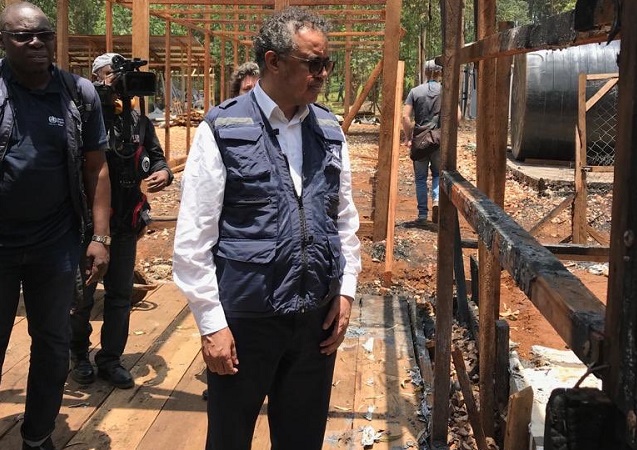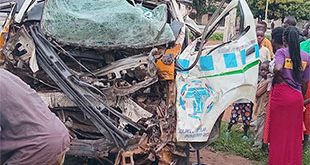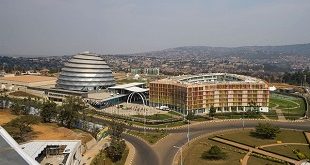
Kampala, Uganda | THE INDEPENDENT | Attacks on Ebola treatment centres in the Democratic Republic of the Congo (DRC), risk reversing the gains made during the current outbreak in the north-east of the country, the head of the UN health agency Dr Tedros Adhanom Ghebreyesus has said.
Dr Tedros resounded the warning after reports of a fresh attack just hours earlier on a facility in Biena health zone, close to Butembo.
The Thursday morning attack is the fourth on treatment or transit facilities in the DRC within the last two weeks. The attack followed the death of an individual in the community which led to escalating violence and the local Ebola transit centre being severely damaged.
Last Saturday, the health chief visited a health centre in Butembo hours after it was attacked for the second time, leaving a police officer dead and medical staff injured. Of the more than 100 armed group’s active in north-eastern DRC, Dr Tedros cited the Mai-Mai and the Allied Democratic Forces as potentially responsible.
The World Health Organization (WHO) Director-General that they are working to find a balance between protecting patients and staff from attacks by armed groups and building community trust and ownership. “It’s not a simple either/or situation; we must do both to end the outbreak,” He said.
The WHO Director-General hailed the bravery and commitment of those responding to the Ebola threat. He said that despite the challenges posed by ongoing insecurity gains had been made against Ebola, as it is now concentrated in the towns of Butembo and Katwa.
Latest data from the DRC authorities indicate that in the latest outbreak which began on 1 August in the Kivu’s, there have been 927 confirmed and probable cases of Ebola, including 584 deaths. More than 87,000 people have been vaccinated including 27,000 health workers in DRC and 5,000 in neighbouring countries. In addition, more than 58,000 “contacts” have been registered and more than 4,200 are being monitored for signs of illness.
There are also half as many new cases now as there were in January, down from 50 cases per week to 25 cases, on average now. The outbreak has been contained in 11 out of 28 communities where cases have been recorded “and we have stopped transmission in Beni, Mangina, Komanda and Oicha, He added.
He noted that the security situation means people are worried about issues beyond health adding that the UN agencies will stay in the area to support communities to overcome challenges affecting them, beyond the outbreak of Ebola.
******
URN
 The Independent Uganda: You get the Truth we Pay the Price
The Independent Uganda: You get the Truth we Pay the Price



